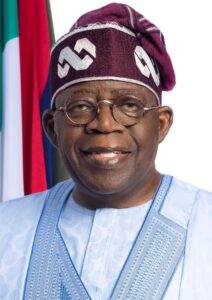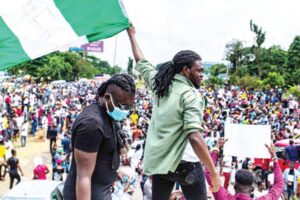
Osun and faceless contractors: Adeleke’s Govt, politics of due process somersault
By Waheed Adekunle
A phrase from a maxim of equity says, “he that comes from above is above all. He that is of the earth is earthly. Thus, he who comes to equity must come with clean hands.” For clarity, this means that a person who makes a claim in equity must be free from any taint of fraud with respect to that claim, hence, a person seeking to enforce an agreement must not himself be in breach of it.
Also, Courtney Lynch once said, ‘leaders inspire accountability through their ability to accept responsibility before they place blame.’ Meaning, without accountability, there can be no trust, and without trust, there can be no meaningful collaboration since open collaboration encourages greater accountability, which in turn fosters trust, as the price of greatness is responsibility.
Going by these appropriate philosophical aphorisms to describe the scourge of hypocrisy that had successfully reared its ugly head and permeated into every aspect of governance under the watch of Governor Ademola Adeleke led-government in Osun state in the last one year, there is no doubt that Osun has become an orphan in the hands of the ruling class in the state.
A careful study of happenings around the government in the state of the Living Springs since the ascension of the incumbent Governor to power, would no doubt expose one to moral decadence, insincerity and executive recklessness reigning in the corridors of power.
The tenets of accountability, transparency, probity and sincerity of purpose in governance had practically faded off, hence, the proliferation of unchecked impunity and sociopolitical clannishness which had become the order of the day since the emergence of Governor Adeleke.
Saying the current administration is unrepentantly poised to frivolities wittingly and deceptively wrapped to favour a few is to say the least of the pervasive anomalies judging from the way and manner the coveted office is being managed over time.
The administration had shown clearly to the world its penchant for lies and fraudulent nature of manipulating public psyches to score cheap political points, pretending that it is practically impossible for a government to approbate and reprobate at the same time.
It would be recalled that Adeleke’s government commenced earthwork exercise on the proposed dual-carriage Akoda-Oke-Gada-Ede-Prime road sometimes last year before the same road was allegedly announced and advertised, contrary to the principle of Due Process, an act, considered to be a gross violation of the dictates of the 2015 Osun State Public Procurement Laws.
Without any sense of equivocation, the road project was neither in the budget inherited by the Adeleke administration, nor in the supplementary financial appropriation presented and approved by the State House of Assembly and assented to by the Governor himself in the last quarter of the previous year.
It was gathered on a good authority that since the ‘emergency decision’ was taken by the Adeleke’s government to dualise the said road which was not in the budget for the Fiscal Year, the identity of the contractor handling the project is yet to be made public by the government up until now in spite of the vilification and raging questions from the discerning citizens, particularly members of the Civil Society Organizations.
In the same vein, the state government had practically failed in its responsibility to disclose the cost of the project and where it intended to source money to finance the project let alone keeping members of the public abreast of the construction state of the project since its commencement.
However, the maladministration of Governor Adeleke has indeed grown thorny wings to the extent that no one either from the State Executive Council or other aides could challenge the rationale behind the approval of the said road for fear of uncertainty in spite of the fact that the same project fails integrity test of public scrutiny.
While this ineptness in Adeleke’s government had left many in the dark, others have been second-guessing as to what may be the financial implications of some of these roads on the state going by the precarious socioeconomic realities in the country.
Recall that Governor Adeleke had in October last year purportedly unveiled N100 billion infrastructural development plan to address the deficit in various sectors and strengthen the economy of the state, where the construction of five flyover bridges in Osogbo, Ede, Ife and Ikirun; rehabilitation of 345 primary healthcare facilities; reconstruction of 31 schools among other were allegedly captured.
Similarly, the spokesperson to the Governor, Mallam Olawale Rasheed, had in October last year, in a statement, stated clearly that his principal had constructed about 55km of roads across the state but failed to reel out the locations of these roads, the contractors that handled the projects, the cost of each of the projects as well as the lengths, breadth and widths of the phoney projects claimed.
The height of these anomalies was noticed recently when the government announced its readiness to construct five flyover bridges across the three senatorial districts without giving adequate and sufficient information on how the project would be executed vis-a-vis the contractors to handle the said projects as well as the cost of each of the flyover.
In a disturbing approach to impress members of the public not minding the legal implications of such, the state government hurriedly commenced the earthwork exercise on the Old-garage-Oke-fia dual carriage road without making it known to the public the contractor handling the project as well as the cost for the project. This is the same pattern all other projects being executed so far since the inception of Adeleke’s government have followed.
One would wonder how a government that hitherto claimed to have been fully prepared to administer the affairs of the state, would just wake up in the morning and award contracts to ‘faceless’ contractors or personalities without traceable identity and track records.
Aside that it is illegal for anyone, be it governor or other members of the executive or any government official to award contract without due process as stipulated by the State Public Procurement Laws, it is a nullity for anyone to execute any unbudgeted project as such act suggests criminality punishable under the law.
For a clearer understanding, it would be recalled that the state government was recently challenged last year to show to the world whether or not it follows due process in awarding the contract for the construction of Akoda-Oke-Gada-Ede-Prime to the contractor handling it, but the scanty response of the state government’s officials particularly the responses from the media team of the Governor showed the inherent failure.
The Commissioner for Information, Barrister Kolapo Alimi, sometimes last year, featured on a popular radio programme, peered with a human rights activist, Ayo Ologun, where the legal practitioner was unable to defend the failure of his principal to embark on the road without following due process and dictates of the State Public Procurement Laws stipulating that no road project should be embarked on by government or any of its MDAs without a recourse to the dictates therein.
For the purpose of clarity and avoidance of doubt, it is pertinent to espouse the readers to some of the Sections of the 2015 Osun State Public Procurement Laws. For instance, under governing rules on public procurement, Section 23 Subsections 1-27 of the Osun Public Procurement Laws say, “Subject to the exceptions under this Law, all procurements carried out by any procuring entity shall be governed by the following rules:
“Open competitive bidding using clearly defined criteria, and offering to every interested bidder equal information and opportunities to offer the works, goods and services needed; Promotion of competition, economy, efficiency and equal opportunities to all parties who are eligible and qualified to participate in public contracts; simple, sustainable, standardized with uniform application to all government procurements and shall be adaptable to advancement in public administration and modern technology;
“Executing in an effective, efficient, transparent, timely, equitable manner to ensure accountability which shall conform with the provisions of this Law and its Regulations with the aim of achieving value for money and fullness of purpose; a system of accountability where public officers and persons involved directly or indirectly in the procurement process or its implementation are when warranted by circumstances to be investigated and held liable for their actions.”
Section 33 (2) says, “in the case of the goods, works and services valued under International Competitive Bidding, the invitation for bids shall be advertised in at least two national newspapers, one relevant internationally recognized newspaper, the official website of the procuring entity, the Agency and the State Procurement Journal not less than six weeks before the deadline for submission of the bids for the goods, works and services.
Subsection 3 of the same law says, “in the case of the goods, works and services under National Competitive Biddings, the invitation for bids shall be advertised on the Notice Board of the procuring entity and the State Procurement Journal not less than six weeks before the deadline for submission of the bids for the goods, works and services while Subsection 4 stipulates that, “not later than six months after enactment of this Law, the Agency shall issue guidelines for the advertisement/publication of invitation to Bid”
Subsection 1(g) stipulates that, “procurement plans shall be supported by prior budgetary appropriation; no procurement proceeding shall be formalized until the procuring entity has ensured that funds are budgeted and appropriated to meet the obligations.”
Emphasizing this further, Subsection 2 of the same law says, “all regulations, procedures and timeliness to be prescribed pursuant to this Law and specified by the Agency from time to time shall always conform to the provisions of paragraphs (a)-(g) of subsection (1).”
So, going by these provisions, it is crystal clear that our dear state has been running with an autocratic tendency which is unhealthy to citizens’ livelihood.
In a saner clime, no capital project or procurement would be made without a recourse to the laws guiding such as in the case of Osun Public Procurement Laws that govern the affairs of government in relation to the award of projects and public procurements in whatever guise.
Though the quest to make necessary inquiries as to the location of the roads claimed by the Adeleke’s government to have either been rehabilitated or constructed is germane, while not foreclosing the need to know the identity of the contractors that handled the self-acclaimed completed roads and those who are handling the ongoing road projects and other infrastructural projects in the state.
It is disheartening that the reign of hypocrisy under Governor Adeleke’s government knows no bounds and it is high time to checkmate and call the government to order so as to entrench public accountability for dignity.
Without being prejudicial, it is not out of place to infer that the current government has been awarding contracts to faceless contractors whose identities were only known to the government , not the general public as stipulated by law.
While majority of the citizens are still kept in the dark as to the costs of most of the infrastructural projects claimed to have been executed and still executing by the state government, it is also incumbent on the government to come out from shell and give unambiguous details on how the resources of the state were being used since the Adeleke’s government came on board.
As a matter of exigency, there’s a need for the government to tell the citizens the genuine kilometers of roads constructed or reconstructed so far and their true and traceable locations as well as the cost of those roads and the profile of the contractors used or still using thus far.
Meanwhile, since President Bola Ahmed Tinubu came on board and publicly announced total removal of the fuel subsidy initiated by his predecessor, the statutory allocation to the states and local governments had increased astronomically at least by 200 per cent, in which Osun is not an exception, but the bizarre adventure in the case of our dear state is what the man at the helms of affairs has been using the humongous funds for in the last thirteen months.
At the risk of sounding immodest, Osun has been receiving billions of naira in multiple folds compare to what it used to receive in the past due to the huge money that the federal government has been saving from the fuel subsidy removal and pumping same into the coffers, yet Osun has remained stagnant as Adeleke’s government couldn’t justify what the monies were being used for, let alone showcased infrastructural development that is commensurate to the value for money received.
Though some Nigerians who do not understand basic economic approach to good governance believe that the endemic hardship in the country is solely caused by the federal government, they forget that the situation is situational and circumstantial, conceived to stimulate the economy for the betterment of all and sundry.
While it is not out of place to allude to the fact that the proceeds from the fuel subsidy removal are being shared regularly between the three tiers of government, it is apposite to note that state like Osun that had received close to 15billion naira special support funds (palliative) had lost governance grip for failing to channel the resources towards the much-desired socioeconomic developments.
It is, therefore, high time to ask the incumbent government to account for all it had received as allocation and special funds from the federation accounts and other sources thus far and as well unveil the faces and identities of projects contractors it had awarded contracts to thus far, and also make public, the costs of each of the projects it has executed.
It is ridiculous that a government could embark on a road project without keeping members of the public informed as to funding; the cost of the project and the identity of the contractor as well as detailed information about where the acclaimed projects are situated.
As an advocate of good governance; crusader of quality leadership, public accountability, transparency and probity, the current situation in our dear state calls for elderly intervention so as to swiftly nip in the bud, the scourge of aristocracy, executive recklessness judicial rascality and impunity reigning in Osun.
It is incumbent on us, as citizens, to urgently rise to the occasion and challenge the government to depart from the path and act capable of glorifying ‘endemic corruption and rudderless’ in the system, so as to ultimately rescue our state from avoidable collapse.
May God heal our land!



